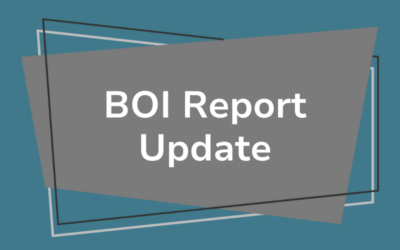In some states, a reseller license might alternately be called a reseller permit, resale license, resale certificate, sales tax permit, or some other term. Regardless of its name, its purpose is to identify your company as a reseller.
Reseller License and Sales Tax
In the United States, a business with a reseller permit does not pay sales tax on the products it purchases for sale. Instead, customers pay sales tax when they buy those products from the reseller. The reseller must collect the sales tax from its customers and send it to the state. The state may require that sales tax is remitted monthly, quarterly, or annually.
The sales tax laws vary by state, and each state has its own sales tax rates. In some states, local sales taxes must be collected, too. According to the Tax Foundation, the nation’s leading independent tax research organization, as of July 1, 2018, 45 states and the District of Columbia collect statewide sales taxes and local sales taxes are collected in 38 states.
If you want to see the current state tax rates and average local tax rates by state, you can find a handy tax rate table on the Tax Foundation’s website.
Five states (Alaska, Delaware, Montana, New Hampshire, and Oregon) do not charge state sales tax and therefore don’t require resellers to have a sales tax exemption certificate. However, realize that Alaska and Oregon do allow local municipalities within their states to charge sales tax.
Nexus Determines Who Must Pay Sales Tax
Whether a business has nexus (sufficient physical presence) in a state determines if it must collect sales or use tax on the products it sells. It may be confusing to identify if a reseller has nexus because different states have different rules on what constitutes sufficient physical presence.
Typically, a business has nexus in a state if one of the following conditions exists:
- It has an office, retail location, or warehouse in the state.
- It stores inventory in the state.
- It has an employee in the state
- It has an affiliate in the state.
- It temporarily has a physical presence (such as at a trade show or expo) to do business in the state.
Note that other situations or circumstances might qualify a business as having nexus. As I mentioned earlier, different states have different criteria.
When a business is considered to have nexus in a state, it will be expected to collect sales tax for that state.
Nexus Determines How Sales Tax is Collected
Does a business collect sales tax for the state where it’s selling from or the state where Its customers are?
- Origin-based Sales Tax States – If a business has a nexus in an origin-based state, it will collect and remit sales tax (and local sales tax, if applicable) in the state where its office or warehouse is located. In other words, the reseller will collect and submit sales tax where its sales originate from.
- Destination-based Sales Tax States – If a business has a nexus in a destination-based state, it will collect and remit sales tax (and local sales tax, if applicable) where its buying customers are located. In other words, the retailer will collect and submit sales tax where it has sold its products.
- Nexus and Online Retailers – With the growth of e-commerce, states have been initiating laws to make sure out-of-state businesses conducting sales online within their states pay applicable sales tax. Click-through nexus legislation and affiliate nexus laws are examples of this.
Required Information for Reseller Permit
Below, I’ve listed some of the information a reseller license might include:
- Reseller name and address
- Reseller license number
- State of Issue
- Type of business activities the reseller conducts
- What the license may and may not be used to purchase
Other information might also appear on a reseller permit. The documents issued are slightly different in each state.
How to Apply for a Reseller License
A retailer needs a sales tax ID for every state where it needs to collect sales tax. Some states will issue a resale certificate when applying for a sales tax ID, while others require a separate application.
The basic steps for applying for a reseller permit include:
- Obtain the application from the appropriate state department. This may be different from one state to the next. For example, in Florida, the state’s Department of Revenue issues reseller licenses, whereas, in California, the State Board of Equalization issues them.
- Organize the information and documents you need to complete the application. This might include your tax ID number, articles of incorporation or articles of organization, driver’s license, bank account information, names and addresses of suppliers, estimated monthly sales revenue, and other details.
- Submit the fee for obtaining your reseller certificate. Some states don’t charge anything for a reseller permit while others require a nominal fee.
- Find out if and when you need to renew your reseller permit. In some states, resale permits expire after a certain period of time.
One of the requirements a business must meet before getting a resale license from a state is that it’s qualified to do business in the state. In states outside of where a business is registered, the reseller will need to have Foreign Qualification.
It’s critical for business owners to make sure they understand their compliance and tax obligations when applying for reseller licenses. Entrepreneurs can help ensure they cover all the bases by consulting a tax advisor and attorney before applying for reseller certificates.
How to Use a Reseller License
When a business purchases from a wholesaler, that company will request to see the resale license as proof that the goods being bought are for resale. Some states have a tax exemption certificate that the reseller must complete and submit to the wholesale vendor when purchasing goods.
How to Simplify the Process
Applying for state sales tax IDs and reseller licenses, submitting foreign qualification forms, and tracking renewal dates can demand a lot of time as you wrangle all the details and complete the necessary paperwork. Fortunately, CorpNet’s business documentation filing experts are here to help with all of it—in all 50 states.
We will take care of ensuring your applications are completed correctly and submitted efficiently so that you can get down to the business of building your business.
Register for Sales & Use Tax
Our specialists manage the process of sales and use tax registration so that virtually no work is required on your part. We will complete the state filings so you can worry about running and growing your business.





